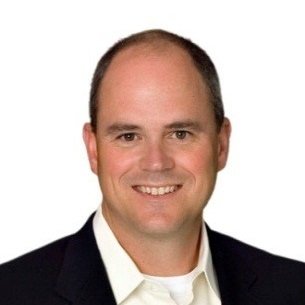CU QUICK FACTS
Harborstone Credit Union
Data as of 12.31.16
HQ: Tacoma, WA
ASSETS: $1.2B
MEMBERS: 76,027
BRANCHES: 16
12-MO SHARE GROWTH: 4.5%
12-MO LOAN GROWTH: 9.7%
ROA: 0.67%
Entrepreneurship is getting a jump-start in and around Seattle, WA, and Portland, OR, with the help of an enterprising group of credit unions and a not-for-profit lender called Business Impact NW.
Business Impact NW (BIN) is a certified CDFI, SBA, and USDA lender that so far has made 20 loans totaling $849,520 with credit union capital that came from a group of four institutions that joined with BIN in 2015 to address the needs of small and microbusinesses who are poised to help build the economic health of their communities. Those credit unions are: BECU ($16.4B, Tukwila, WA), Harborstone Credit Union($1.2B, Tacoma, WA), OnPoint Community Credit Union ($4.6B, Portland, OR), and Verity Credit Union($503.8M, Seattle, WA).
Borrowers come from a range of backgrounds and are engaged in a range of enterprises, including spas, micro-farms, breweries, and Panama hat distribution.
BIN loans range from $5,000 to $250,000 and typical interest rates range from 7% to 11%. The organization also offers counseling, entrepreneurship classes, and partnerships with local universities.

Phil Jones, CEO, Harborstone Credit Union
Here, Harborstone CEO Phil Jones discusses his credit union’s involvement with BIN.
Why did Harborstone form this collaboration?
Phil Jones: We were hearing from our members, the community, and state and federal elected officials that women, immigrant, minority, and veteran business owners were having difficulty accessing loans and obtaining assistance from traditional lenders. Harborstone created BIN to provide financial services and products to an important segment of the communities we serve. BECU, OnPoint Community Credit Union, and Verity Credit Union join Harborstone in providing a pool of funds to lend to these businesses.
What do these businesses get that they can’t get from other financial institutions?
PJ: Many of these firms are under-capitalized and might be lacking in the traditional things lenders look at. Collateral, for example. Many businesses need more than a loan; they need training and assistance, too. Many have great ideas and a lot of passion but minimal business experience or knowledge. We provide the financial services they need as well as help them create a successful and sustainable business through additional assistance.
3 Best Practices
Harborstone CEO Phil Jones offers three ways credit unions can support small businesses.
- Work with other credit unions. Credit unions that band together can do amazing things. We are one of the few industries that collaborate, so find like-minded partners.
- Partner with a local non-profit.There are probably area non-profits that already are working to meet the distinct needs of small businesses. These groups would benefit from a strategic partnership with a credit union.Credit unions can make a measurable difference not only within these agencies but also within the community overall.
- Don’t go too fast. There’s a lot of need out there; however, focus on creating something that will be viable and sustainable. These small businesses need you to be dependable. The effort must be done right, andtypically this takes some time.&
How do the BIN partners contribute to the organization?
PJ: We provide much-needed lending capital and operating support as well as management and staff time and expertise. But small businesses also need to know their lender is there for them in the long run. The BIN partners provide this assurance of stability and consistency. Our support, along with all the other banks, government agencies, and foundations, is critical to creating an organization that is going to be there for the long run.
What kind of time involvement does this require from Harborstone and your staff?
PJ: Right now, I’m chair of the BIN board. We spend a few hours per month in the board meeting and a few hours more on committee work. Harborstone has a number of executives who volunteer their time on BIN operating committees. We also have staff members involved in managing and governing the lending fund.
What is the key to a community financial institution succeeding in this work?
PJ: Recruiting like-minded partners to help. By attracting these partners, we increase the impact of this effort. We get more ideas, ingenuity, energy, and capital. And it can make it a lot more fun.
How does this work fit into Harborstone’s mission?
PJ:Our mission is to be an anchor of trust for our members. We view our work with BIN as an extension of that mission. Our members trust us to do the right thing for them and for the communities we serve. Helping small businesses gain access to capital, business training, and assistance creates strong, viable communities. It creates jobs in areas in need of development.
Innovative products? Strategic new services? Callahan’s Strategy Lab is a great way to help leadership teams think outside the box while staying inside the credit union’s four walls.Find out if this program is a fit for you.
What results do you hope to see from this work?
PJ: We measure results by the number of jobs we help create in our communities. We measure success by how many women, minority, veteran, and immigrant businesses are kept afloat and grow because of our assistance. Our hope is that as these businesses become more financially viable and ready for traditional small business banking products and services, they will look to us to provide that.
What about intangible results?
PJ: This supports our culture and makes us all proud of the work we are doing together. Our employees are proud to be part of an organization that is about more than profit. When the organization supports efforts like this, it is a corporate effort to walk the talk. It’s trust in action and supports everything we do.
How Business Impact NW Helps Small Businesses Grow
Want to learn more about Business Impact NW? See what Joe Sky-Tucker, co-executive director of BIN, has to say.
What does your organization do?
Joe Sky-Tucker: We provide access to capital, lending, and high-quality technical assistance to businesses in underserved communities. Because we’re a mission-based lender, we can provide services traditional lenders cannot.We rely on the help of Harborstone and others to, in a sense, subsidize our work.
What role do universities play in your work?
JST: Student teams at the University of Washington and Portland State University, under the supervision of faculty, analyze businesses looking to grow and create a plan. BIN provides loan readiness trainings and the capital neededto execute those growth plans.
Describe BIN’s role as a counselor on growth and strategies.
JST: Business Impact NW is funded by the Small Business Administration to run the Washington Women’s Business Center and the Veterans Business Outreach Center. Both of these programs provide training and one-on-one businesscounseling to underserved businesses.
What kind of businesses do you work with?
JST: Approximately 25% are in the food sector, including cottage businesses selling products at farmers markets, vegan restaurants, coffee shops, coffee roasters, and commercial kitchens. We also work with service-oriented businessessuch as yoga studios, law firms, child and family therapists, and CPAs.
In 2016, we lent on average $55,000 to 49 businesses. More than 40% of our new loans were to women business owners; 29% were to business owners of color. Those loans, and the $2.1 million we disbursed in 2016, created or retained 281 jobs.
How does BIN identify participants?
JST: We work with our partners to build referral sources.
How does BIN underwrite loans?
JST: We use the same underwriting categories that credit unions use; however, we score them a little differently and take more risks. As such, our rates and our losses are higher.
How are these loans and businesses performing?
JST: Forty percent of our loans pay off early. That means the business has reached bankable status and has refinanced our debt with a mainstream lender, including credit unions. To us, that’s success. However,we do take annual losses of approximately 5-7%.
After it closes a loan, what does BIN do for borrowers?
JST: Our borrowers need high-touch services. We offer technical assistance, and loan officers work with borrowers who get behind on payments. We offer interest-only payments for borrowers who are experiencing a downturn in their businessbecause of seasonality or other issues.
These interviews have been edited and condensed.
